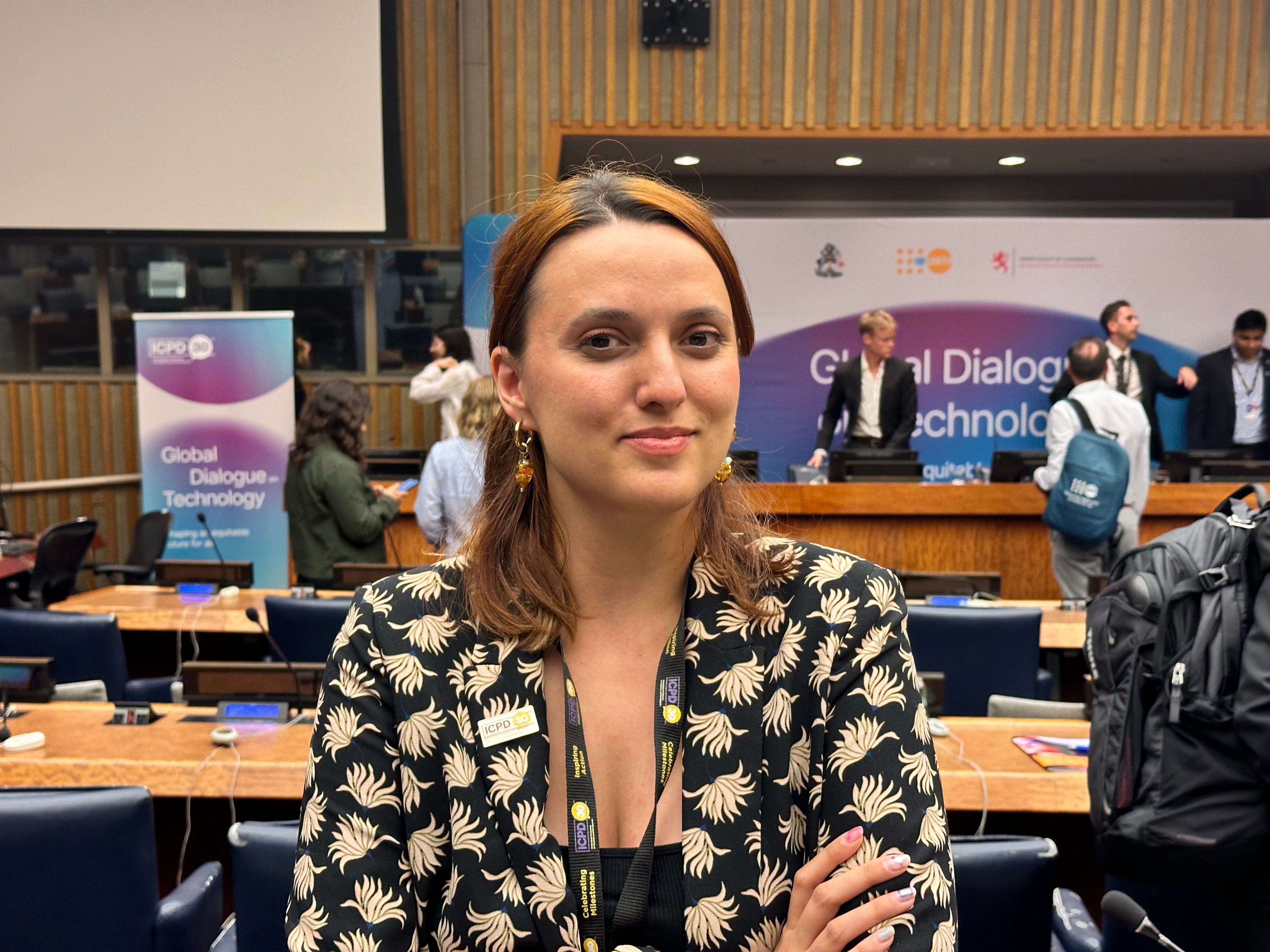Take Five: “Advocacy is not just about big actions—it is about the small, consistent steps we take together to create a world that’s a little better than the one we inherited”
Date:

Sara Milenkovska is a feminist activist, researcher and co-founder of the Stella Network, a civil society organization advocating for gender equality in North Macedonia. With a background in gender studies, political science and strategic communications, her research focuses on systemic inequality, exploring intersectionality, countering anti-gender movements, and amplifying the voices of marginalized groups, particularly in the face of (digital) gender-based violence. Sara’s approach, as both a scholar and a practitioner, is based on praxis, leveraging feminist principles for tangible political advocacy and community empowerment. At the Stella Network, she leads initiatives that provide mentorship and assistance to women and girls, recognizing the transformative power of solidarity networks. Sara’s varied work demonstrates the potential of activism, academia, and community engagement to drive positive social change.
Can you describe your professional journey and what motivated you to combine research with advocacy?
My professional career and activism have always been deeply interconnected. While building my experience and skills, I held various jobs that, despite their differences, each contributed uniquely to my current path. I began as a journalist for a youth educational programme, and later worked as a monitoring and evaluation assistant for an EU-focused international development programme in North Macedonia. However, my most important role has been in co-founding and growing the Stella Network, which has been at the forefront of mentoring women and girls since 2018. This dual focus on systemic and grassroots work deepened my appreciation for intersectional advocacy to address inequalities.
The turning point for me was receiving a book on the Rwandan Genocide at 14, which shaped my understanding of the importance of data in advocacy. This early experience, coupled with my feminist upbringing and Bosnian heritage, solidified my belief that personal narratives, when supported by data, can drive meaningful change. The integration of evidence-based research with advocacy is crucial for developing survivor-centered approaches and sustainable peacebuilding.
What do you see as the main challenges to attaining gender equality in North Macedonia?
The challenges in North Macedonia mirror broader global issues. Some of the main obstacles include a culture that normalizes violence against women, institutionalized misogyny, and growing anti-gender movements. Though there are optimistic forecasts, such as a UN Women research indicating that gender equality may be attained in 57 years, these forecasts frequently assume an insufficiently slow rate of advancement. While one of the core tenets of feminism is to remain hopeful—and I am hopeful about the future, fueled by solidarity—I am also deeply concerned by the present realities. However, it is increasingly clear that we cannot afford to delay action; there is a growing unity in the fight for gender equality and justice.
As gender equality is increasingly erased from media narratives and policy documents, it is imperative to create more effective resistance strategies and build coalitions from an intersectional perspective. Gender equality is not solely a women’s issue, it intersects with all aspects of society—class, race, citizenship, demographics, sexual orientation, and more. Another significant challenge is the need for a sustainable approach to supporting feminist organizations at the national and regional levels, including establishing stronger coalitions and ensuring access to feminist funding.
How can youth-led research address contemporary societal issues and lead to meaningful insights or policy changes?
Youth-led research has proven essential in challenging traditional tokenism in youth representation. For instance, our youth-led research, “Voices of YOUth: Gender Equality and Social Cohesion in the Western Balkans,” provided critical insights into regional gender disparities highlighting the need for physical spaces for youth engagement. These spaces are not just venues for interaction but platforms where young people can share their experiences, foster solidarity, and strengthen their connection with public institutions. Although there is room for more integration of youth-led research in policy, the impact of such research is evident in shaping youth-focused initiatives and fostering greater understanding and inclusion.
According to a recent study, young boys and girls differ more profoundly in their interactions and communication styles. It is critical to concentrate on developing empathy and understanding between them from a young age to combat the widening divide. One important strategy in deradicalizing young boys from sexist extremism is to acknowledge the vulnerability of others. In order for that to occur, we must reclaim the places that are already there. These spaces should be formal (educational settings) as well as informal (public), as they should offer a sense of safety, inclusivity, and openness. But also create a culture of nurturing relations which reaffirm gender inclusion and equality.
Can you explain the importance of transnational solidarity in advancing gender equality, especially for youth in the Western Balkans?
Transnational solidarity is crucial in addressing global gender inequalities. By connecting diverse feminist struggles, we build networks that transcend borders and challenge systems of oppression. This solidarity supports decolonizing theory and practice, fostering inclusive collaboration. It is about leveraging shared experiences to drive global social change and ensure that feminist knowledge and practices are accessible and effective across different contexts.
What advice would you give to young people aspiring to become advocates for gender equality and human rights?
Share your story, immerse yourself in feminist theory, and never shy away from speaking up. The path is not easy, and there will be challenges, but it does get better. It is crucial to nurture a strong sense of community and care. These are the tools that fuel solidarity and give us the strength to keep going, even when the road is tough. Advocacy is not just about big actions—it is about the small, consistent steps we take together to create a world that’s a little better than the one we inherited. Remember, you are not alone in this journey, and every voice matters in building the future we want to see.